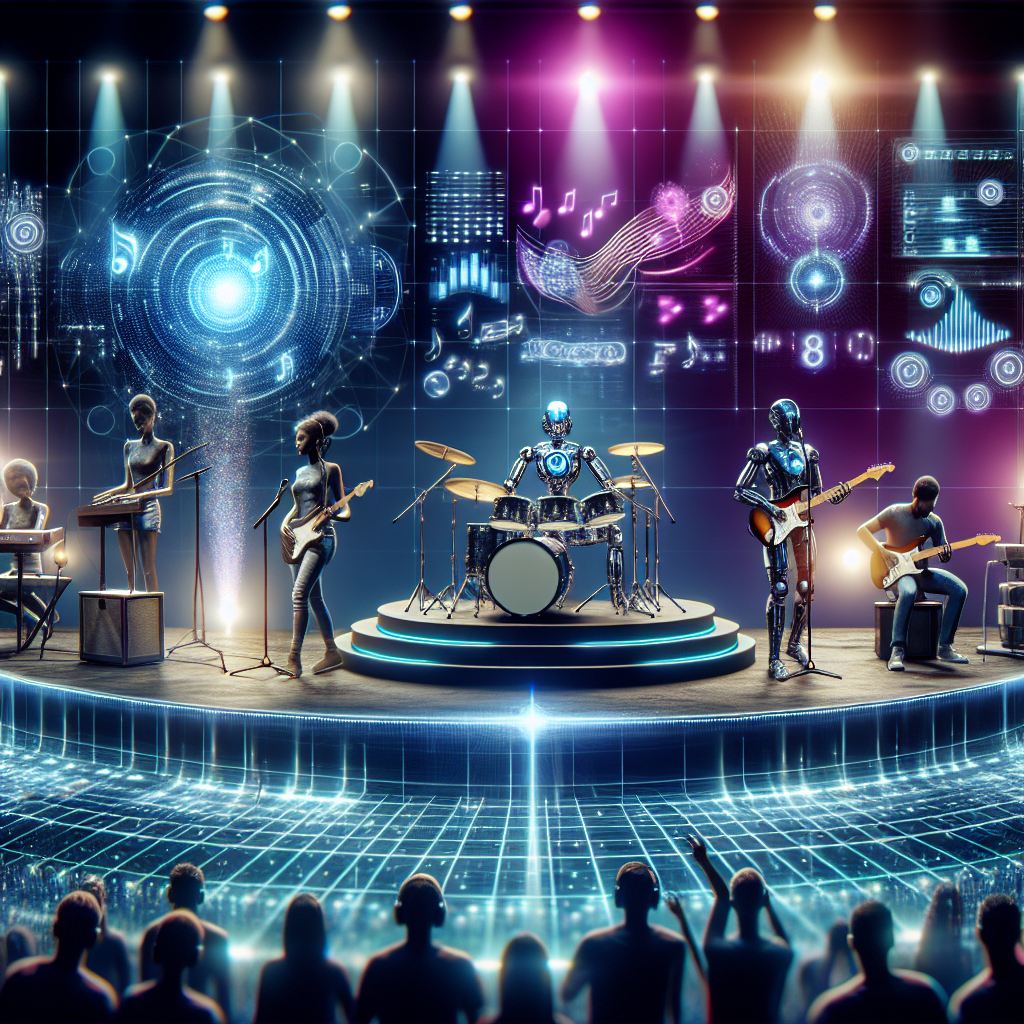The integration of artificial intelligence (AI) into the music industry has had a profound impact on the way live music performances are created and experienced. From AI-generated music compositions to virtual reality concerts, the possibilities for using AI in live music performances are seemingly endless. In this article, we will explore the ways in which AI is shaping the future of live music and how it is revolutionizing the way we experience music as a whole.
AI in Music Composition
One of the most significant ways in which AI is changing the landscape of live music performances is through music composition. AI algorithms are now capable of composing original music pieces that rival those created by human composers. By analyzing vast amounts of musical data and patterns, AI systems can generate new compositions that are both unique and engaging.
For example, companies like Amper Music and Jukedeck have developed AI platforms that can create custom music tracks based on a user’s specifications. These platforms allow musicians and producers to quickly and easily generate high-quality music for their projects without the need for a human composer.
In the realm of live music performances, AI-generated compositions can be used to enhance the overall experience for audiences. Imagine a concert where the music is composed in real-time by an AI system, responding to the emotions and reactions of the crowd. This level of interactivity and spontaneity would create a truly immersive and unique experience for concertgoers.
AI in Music Production
AI is also revolutionizing the way music is produced for live performances. AI tools like AIVA and Magenta are being used to assist musicians and producers in the creation of music tracks and soundscapes. These tools can analyze audio data and provide suggestions for improving the quality and structure of a song.
In a live music setting, AI can be used to enhance the sound quality of a performance by automatically adjusting levels and effects in real-time. This can help to ensure that the music sounds its best, even in challenging acoustic environments.
Furthermore, AI can be used to create dynamic lighting and visual effects that are synchronized with the music. By analyzing the tempo and mood of a song, AI systems can generate lighting patterns and visuals that complement and enhance the overall performance.
Virtual Reality Concerts
Another exciting development in the world of live music performances is the use of virtual reality (VR) technology to create immersive concert experiences. VR concerts allow fans to attend live shows from the comfort of their own homes, experiencing the sights and sounds of a concert as if they were there in person.
AI plays a crucial role in VR concerts by creating realistic avatars of musicians and generating lifelike animations and movements. By using motion capture technology and AI algorithms, virtual concerts can capture the essence and energy of a live performance, making fans feel like they are part of the action.
In addition, AI can be used to personalize the concert experience for each viewer. By analyzing user data and preferences, AI systems can tailor the visuals and audio of a VR concert to create a custom experience that resonates with each individual fan.
FAQs:
Q: Will AI replace human musicians in live performances?
A: While AI has the potential to assist and enhance the work of human musicians, it is unlikely that AI will completely replace them in live performances. The creativity, emotion, and spontaneity that human musicians bring to a performance are irreplaceable and essential to the live music experience.
Q: How can AI improve the quality of live music performances?
A: AI can improve the quality of live music performances by assisting in music composition, production, and sound engineering. AI tools can help musicians create high-quality music tracks, adjust sound levels in real-time, and synchronize lighting and visual effects with the music, resulting in a more immersive and engaging experience for audiences.
Q: Are VR concerts the future of live music performances?
A: VR concerts offer a unique and immersive way for fans to experience live music performances, but they are unlikely to replace traditional concerts entirely. While VR concerts provide convenience and accessibility, many music fans still prefer the energy and atmosphere of a live show. It is likely that both traditional and virtual concerts will coexist in the future, offering fans a range of options for experiencing live music.
In conclusion, AI is transforming the world of live music performances in exciting and innovative ways. From AI-generated music compositions to virtual reality concerts, the possibilities for using AI in live music are endless. By harnessing the power of AI, musicians and producers can create truly immersive and personalized experiences for audiences, shaping the future of live music performances for years to come.

